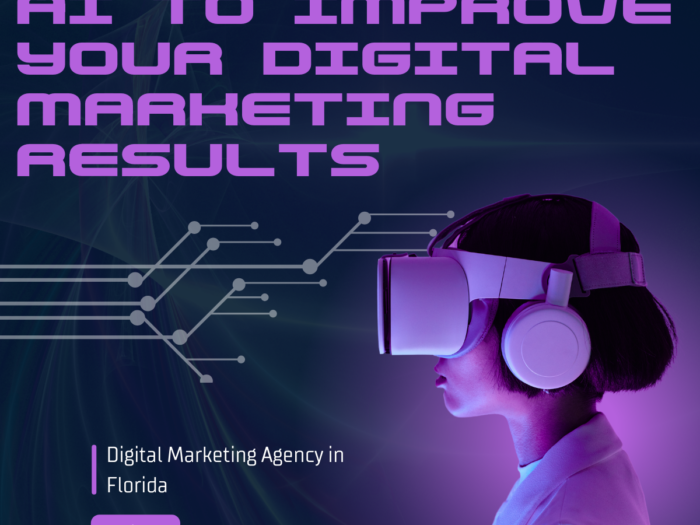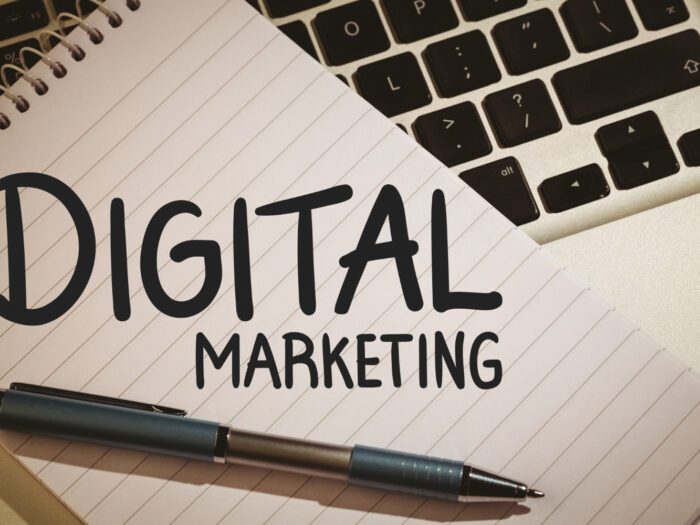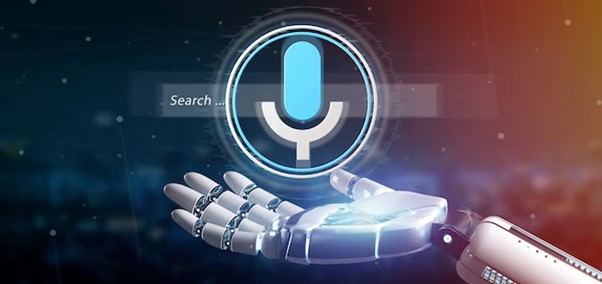Are you looking to take your digital marketing efforts to the next level? Do you face difficulties in understanding your customers’ behaviors, personalizing your marketing campaigns, or predicting future trends? If yes, AI can be a valuable resource that can help you in several ways. It is like a super-smart assistant for digital marketers. It helps them better understand customers, personalize experiences, and target the right people with the right messages. Plus, it is becoming increasingly important in the world of marketing because it helps businesses connect with customers in more innovative ways. In this blog, we’ll explore artificial intelligence’s potential applications and provide actionable strategies for implementation. Get ready to discover how AI can enhance your online marketing efforts and drive unparalleled results.
Applications of AI in Digital Marketing
1. Personalization:
Personalization is like giving each customer their own tailor-made experience, and AI makes this possible at scale. By analyzing a vast amount of data, it can understand each customer’s preferences, behaviors, and past interactions with a brand. It enables marketers to create highly personalized experiences, such as recommending products or services that align with customers’ interests or offering special promotions based on their purchase history. For example, if someone frequently buys running shoes, AI can suggest complementary products like running gear or accessories, increasing the likelihood of a purchase.
Personalization isn’t just about selling more—it’s about making customers feel valued and understood, which leads to stronger relationships and loyalty.
2. Better Insights:
Artificial Intelligence is like a super-smart analyst who helps marketers better understand their customers and what’s happening in the market.
- Marketers can use automated intelligence algorithms to process massive amounts of data, predicting trends and patterns that humans might miss.
- It analyzes customer behavior, market trends, and competitor activities to provide valuable insights that help marketers make smarter decisions.
- For example, AI might reveal that a particular demographic shows increased interest in a specific product, prompting marketers to adjust their targeting strategies accordingly.
- These insights help marketers focus their efforts where they’re most likely to have an impact, optimizing their marketing campaigns for better results.
By utilizing AI-powered insights, marketers can stay ahead of the competition and make wise decisions that drive growth and success.
3. Precise Targeting:
In digital marketing, reaching the correct audience is crucial, and AI makes it easier to do just that. Here’s how it helps marketers target their advertising more precisely:
- Artificial Intelligence algorithms identify the most relevant audience segments for a particular product or service by assessing various data aspects, such as interests, demographics, and online behaviors.
- This targeted approach improves the effectiveness of marketing campaigns and minimizes wasted ad spend.
- Businesses can optimize their advertising ROI by delivering highly relevant and customized advertisements to potential customers, ultimately driving conversions and revenue.
It improves the efficiency of marketing efforts and enhances the overall customer experience by delivering relatable and timely content.
4. Improved Content:
Content is the soul of digital marketing, and AI helps marketers develop content that resonates with their audience and drives engagement. It acts like a helpful editor, offering suggestions to make content more engaging and effective. It can analyze how well content is performing and provide insights into how it can be improved. Here’s how this machine Intelligence improves content creation:
- AI-powered tools can analyze content performance across various channels, such as websites, social media, and email campaigns.
- By examining metrics like engagement rates, click-through rates, and conversion rates, AI provides insights into what content is performing well and what needs improvement.
- Armed with this information, marketers can fine-tune their content strategy, making adjustments to improve search engine rankings, increase engagement, and drive conversions.
- For example, AI might suggest incorporating certain keywords into blog posts to improve SEO or using more visuals to increase engagement on social media.
Marketers can create high-quality campaigns that resonate with their target audience by continuously optimizing content based on Artificial intelligence insights.
Automated Campaign Management:
AI streamlines campaign management processes by automating repetitive tasks such as ad placement, budget allocation, and performance tracking. AI-powered platforms leverage machine learning algorithms to optimize real-time campaign performance, adjusting targeting parameters and ad creatives for maximum results. By automating routine tasks, marketers can focus on strategic initiatives like creative ideation and audience analysis. Automated campaign management improves efficiency, ensures consistency, and enhances accuracy across marketing initiatives, leading to better outcomes and ROI.
Enhanced Customer Service:
AI-driven chatbots and virtual assistants revolutionize customer service by providing instant support and personalized assistance 24/7. These intelligent bots engage with customers in natural language, addressing queries, resolving issues, and guiding purchasing decisions. By leveraging AI-powered customer service solutions, businesses can elevate the overall customer experience, boost satisfaction, and cultivate long-term loyalty. Moreover, these chatbots collect valuable customer feedback and insights, enabling marketers to refine strategies and deliver more tailored experiences.
Practical Tips for Implementing AI in Digital Marketing
Now that we’ve explored the major applications of Artificial intelligence in digital marketing. Let’s discuss some actionable tips for implementing AI-driven strategies:
1. Identify Your Objectives:
Before integrating AI into your marketing efforts, clearly outline your goals & key performance indicators (KPIs). Whether it’s improving lead generation, increasing conversion rates, or enhancing customer engagement, having well-defined goals will guide your implementation strategy.
2. Select the Right AI Tools:
Conduct thorough research to identify AI-powered tools and platforms aligning with your marketing objectives and budget. Consider components like ease of integration and compatibility with your existing tech stack. Some popular AI tools for digital advertising include:
- CRM (Customer Relationship Management) systems with AI capabilities
- Predictive analytics platforms
- Personalization engines
- Chatbots and virtual assistants
- Content optimization tools
Look for tools that offer intuitive interfaces, robust functionality, and seamless integration with your existing marketing stack.
3. Utilize the Power of Data:
Data is the lifeblood of AI-powered marketing. Ensure that you have access to high-quality data from multiple sources, including customer interactions, website analytics, and demographic information. Clean and organize your data to eliminate inconsistencies and ensure accuracy. Consider implementing data management platforms (DMPs) or customer data platforms (CDPs) to centralize and streamline your data collection efforts. The more data you feed into your AI algorithms, the more accurate and valuable the insights will be.
4. Train and Upskill Your Team:
Invest in training and upskilling your marketing team to ensure they have the necessary knowledge and skills to leverage AI-powered tools and techniques effectively. Provide comprehensive training programs and workshops covering topics such as data analysis, machine learning, and AI-driven marketing strategies. Encourage continuous learning and professional development through virtual courses, certifications, and hands-on projects.
5. Balance Automation with Human Touch:
While AI can automate many marketing tasks and processes, it’s crucial to maintain a human touch in customer interactions. In marketing campaigns, use artificial intelligence to enhance human creativity, empathy, and intuition. Strike a balance between personalization & automation to deliver authentic, resonant experiences. Humanize your brand through two-way conversations, feedback responses, and empathy toward customer needs.
6. Monitor and Optimize Performance:
Track the performance of AI-driven marketing efforts regularly to pinpoint areas for enhancement. Evaluate key metrics to assess its effectiveness. Utilize analytics for insights into customer behavior, preferences, and trends. Optimize AI models based on real-time feedback, refining strategies for improved outcomes.
Final Say!
Artificial Intelligence is changing the way advertisers market products and services. It helps marketers enhance their strategies and get better results. By using automated tools, marketers can gain useful insights, improve campaigns, and provide personalized experiences that resonate with their audience. Take advantage of AI’s potential and enhance your digital marketing efforts in the continuously growing digital world. Are you ready to upgrade your marketing strategy with AI? If yes, book your free consultation with the Zytal support team and get insights.






